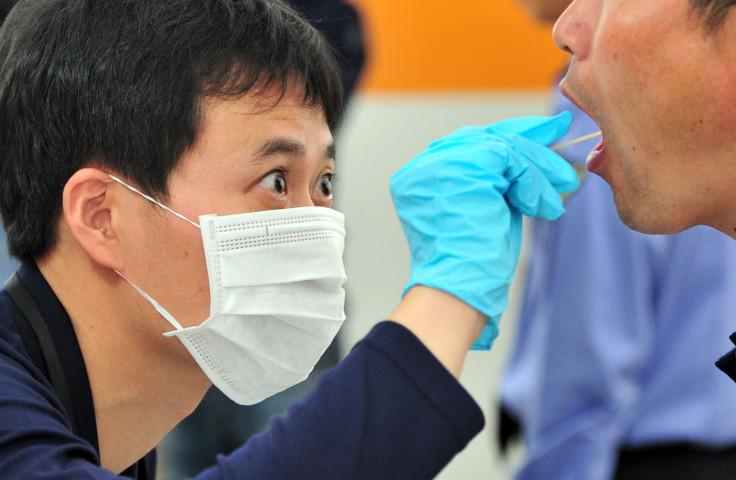Medical 'Superheroes' Remain Healthy Despite Having Genetic Mutations Linked To Severe Childhood Diseases

Most of us know of some legendary Aunt Gertrude or Uncle James who, despite years of smoking cigarettes or drinking way too many cocktails, has somehow lived strong and healthy well into their 90s — outliving friends and family who, unlike them, avoided the unhealthy vices. Wouldn’t we all be better off if, instead of studying sick people, scientists figured out what makes people like Uncle Jimmy and Aunt Gert tick?
A new study more or less does that. Analyzing genomic data from more than half a million people, researchers have identified 13 “superheroes” — adults who have remained healthy despite carrying genetic mutations linked to severe childhood diseases known as Mendelian disorders.
A Mendelian disorder “is a disease caused by a single mutation in your genome, in a single gene, that is sufficient to cause the disease,” Dr. Eric Schadt, Icahn School of Medicine, told Medical Daily in an email. “For each gene in your genome you have two copies of that gene, one you inherited from your mother and the other from your father. Some Mendelian diseases result from getting just one “bad” gene from one of your parents [dominant inheritance] whereas others result only if you get two “bad” copies of the same gene [recessive inheritance — the most common form].”
Scientists assume the genetic mutations causing Mendelian disorders, such as cystic fibrosis, sickle-cell anemia, and Tay-Sachs disease, are completely “penetrant,” meaning that anyone carrying the bad gene will inescapably develop the disease and all its symptoms.
However, there might be some adults in the general population who unknowingly carry the Mendelian mutations while remaining healthy. The supposed penetration of these genes is, after all, an assumption based solely on genetic analyses of people who have these diseases and their family members. Healthy people don’t often get their genome sequenced (or at least not yet), so they might carry mutations that have never been detected.
As senior author Dr. Stephen Friend, Icahn School of Medicine and Sage Bionetworks, explained in a press briefing, he and his colleagues decided to perform a “pilot” study simply to see whether or not they could investigate this with the current technology.
“This paper was a process of finding data that had already been generated and searching through this data and asking could we find individuals that had mutations… and yet [these resilient individuals] were healthy,” Friend said.
And so Friend and his colleagues began by requesting a contribution of raw data from various sources, including private genetics company 23andMe and other groups from Canada and Finland.
Once they obtained data for 589,306 adults, Friend, Schadt, and their colleagues searched for one or more mutations linked to 584 separate Mendelian disorders. At first pass, the team discovered thousands of potential candidates. Yet, after more thorough study, the majority did not fit the bill. Adding to the rigor of their analysis, a team of geneticists, medical consultants, and bioinformaticians also scoured medical records and available health data to ensure that none of the so-called healthy adult candidates had subtle disease symptoms.
Finally, after an extensive investigation, the research team identified 13 people who appeared to be completely resilient to one of eight Mendelian childhood conditions even though they carried penetrant genetic mutations. It’s reasonable to assume, according to the researchers, that these “superheroes” conferred their resilience to these childhood diseases from another gene or genes, from environmental factors, or both.
“Luckily in model organisms there are many examples of single second-site mutations that can provide resilience,” Friend told Medical Daily, explaining that while a single gene might “buffer the manifestations of a primary deleterious gene mutation, it is quite reasonable to assume that a pair or even a cluster (or network) of genes might provide that resilience.”
Though this a very plausible theory, the researchers found themselves stymied in testing it due to a very simple problem: the original genome sequencing consent forms signed by these 13 superheroes lacked a clause allowing for recontact. According to Dr. Daniel MacArthur of the Massachusetts Institute of Technology, “the results are rather sobering” in light of the fact that more than half a million people yielded just 13 resilient people with no more than three each for any specific variant.
“This suggests that even with a million properly consented and deeply sequenced samples, it is extremely unlikely that enough genetic superheroes will be detected to enable a statistically well powered genome-wide search for the genetic variants that modify disease genes,” wrote MacArthur in an editorial.
In other words, these diseases are rare, yet having resilience is even rarer. So the fact remains that, despite what Friend describes as “brilliant work” done over the past two decades on identifying the genetic causes of disease, actual treatments derived from this knowledge has been limited.
“Finding the gene causing the disease is not the same as finding the gene that causes the symptoms,” said Friend. Nevertheless, he and his team remain hopeful that their methodology will remain useful, saying, “this concept of resilience can apply to a wide set of disease, infections, and other areas.”
Source: Chen R, Shi L, Hakenberg J, et al. Analysis of 589,306 genomes identifies individuals resilient to severe Mendelian childhood diseases. Nature Biotechnology. 2016.



























